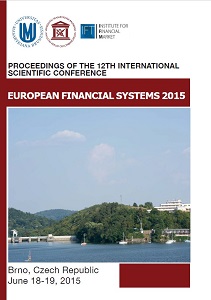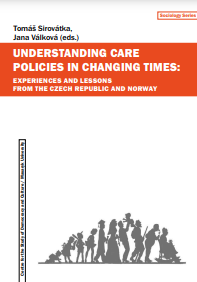
Who Has Had the Main Say in the Path of the Czech Pension Reform: Politicians, Experts - or Both?
Although pension systems are among the most stable elements of social systems, even they evolve. In recent decades, dozens of countries have joined in by enacting minor adjustments or significant reforms. Politicians as well as invited experts have been paying close attention to the topic. In this paper, we analyze the framework of the spirit and content of the discourse of the Czech pension reform between 2004 and 2014 with the aid of discursive institutionalism theory and methods of framing analysis.
More...







